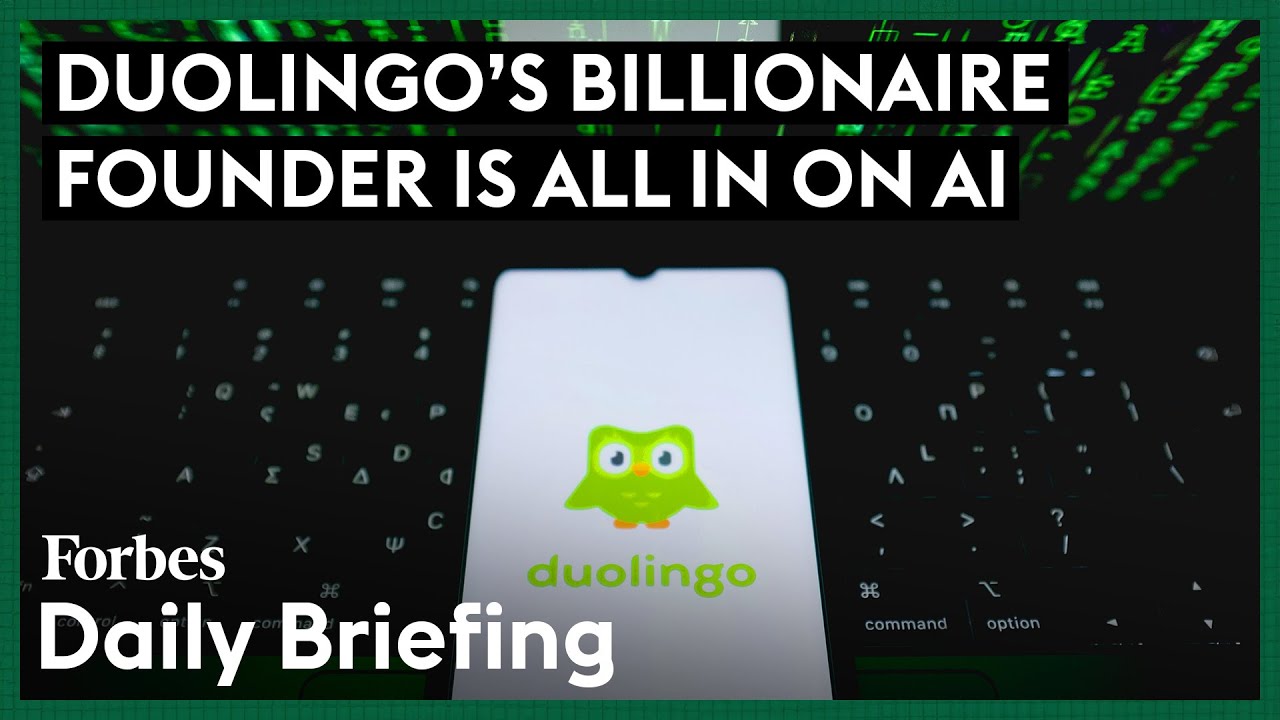Luis von Ahn, founder and CEO of Duolingo, discusses the impact of AI on the workforce, highlighting job losses and the need for retraining, particularly for vulnerable populations. Despite concerns about regulation and employment challenges, he remains optimistic about AI’s potential to enhance education, as evidenced by Duolingo’s growth and new interactive features aimed at improving language learning.
In a recent Forbes article, Duolingo’s founder and CEO, Luis von Ahn, discusses the impact of artificial intelligence (AI) on the workforce while dining at a Mexican restaurant in Pittsburgh. He reflects on the potential job losses due to AI advancements, emphasizing the need for retraining workers. Last year, Duolingo made the decision to automate certain tasks, such as translations and lesson writing, resulting in the dismissal of about 10% of its contracted workforce. Von Ahn believes that while automating these roles was necessary for the company, it poses broader challenges for workers, particularly those in lower-income brackets and less educated populations.
Von Ahn acknowledges the complexities surrounding AI’s influence on employment, noting that it will disproportionately affect vulnerable groups, not just in the U.S. but globally. He stresses the importance of smart regulation from governments to ensure equitable outcomes as AI technology evolves. However, he expresses skepticism about the U.S. government’s ability to legislate effectively on this issue, given the current political climate and lack of consensus.
Despite these concerns, von Ahn remains optimistic about the potential of AI to enhance education and learning opportunities. He believes that language learning can significantly improve individuals’ earning potential and help lift people out of poverty. Duolingo aims to be at the forefront of this transition, with aspirations to develop an automated AI tutor capable of teaching foreign languages effectively.
Recently, Duolingo introduced new interactive features powered by AI, including video calls with a character named Lily, allowing users to practice conversational skills in a simulated environment. This feature is part of a premium subscription tier called Duolingo Max, which also includes tools that provide feedback on users’ answers and immersive scenarios for language practice. These innovations are part of Duolingo’s broader push into generative AI, which began last year.
The company’s AI initiatives have led to significant growth, with a reported 104 million monthly users, marking a 40% increase year-over-year. Duolingo’s revenue reached $78.3 million in the last quarter, and its stock recently hit an all-time high, elevating the company’s market cap to $11.75 billion. Von Ahn, who owns about 10% of the company, has become a billionaire alongside his co-founder, Severin Hacker. As competitors also invest in AI, the language learning landscape continues to evolve rapidly.
